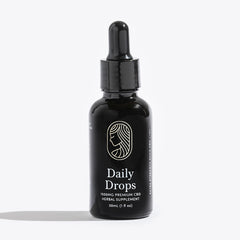For many, a night of quality sleep can often sound more like an elusive treasure, but it doesn’t have to. Reclaiming the power of rest and rejuvenation is within your control! Our EQ Sleep Primer is a simple, straightforward guide to unlocking the quality sleep you crave!
Step 1: Understand your unique sleep needs
Our sleep needs change with age, lifestyle, overall health, and even hormonal fluctuations. <1>Therefore, a crucial initial step toward improving sleep is identifying your individual sleep requirements.
- Age: Sleep needs and challenges evolve as we grow older. According to The Centers for Disease Control and Prevention (CDC), adults between 18 and 60 years old need at least 7 hours of sleep per night, adults aged 61-64 years old should aim for 7-9 hours, and adults aged 65 and older should aim for 7-8 hours. <2>
- Hormones: Hormonal fluctuations during women’s menstrual cycles including variations in estrogen and progesterone levels can make it difficult to fall or stay asleep. Older women may experience more sleep disruptions as their estrogen and progesterone levels decline. <3>
- Wake / Sleep Schedule: Click here for a sleep calculator that will help you determine the ideal time for you to go to bed and wake up in order to avoid disrupting your sleep cycle.
Step 2: Remember that good sleep starts long before bedtime
 Your daytime behaviors are equally impactful to your sleep quality as your nighttime routine. Regular exercise and limiting your caffeine intake in the hours leading up to bedtime can significantly improve sleep quality. <4,5 and 6>
Your daytime behaviors are equally impactful to your sleep quality as your nighttime routine. Regular exercise and limiting your caffeine intake in the hours leading up to bedtime can significantly improve sleep quality. <4,5 and 6>
Additionally, stress and anxiety can have a significant impact on your sleep quality. <7> Practicing relaxation techniques such as deep breathing, meditation, and progressive muscle relaxation can help calm the mind and body, making it easier to fall asleep. <8> Consider using resources such as the 3-minute Square Breathing Exercise, or practices such as Yoga Nidra for Sleep that assist in relaxation.
Before turning out the lights, grab your journal and take a moment to reflect on your day by writing down three to four positive things that happened during the day. A study conducted by the University of Manchester in England demonstrated that practicing daily gratitude was related to having fewer negative thoughts at bedtime, which led to participants falling asleep faster and noticing improvements in the quality and duration of their sleep. <9>
Step 3: Optimize your environment for sleep
Creating a comfortable sleep environment is essential for quality sleep. According to the Sleep Foundation and the CDC, figuring out the right temperature, noise, and lighting can work wonders for your ability to fall and stay asleep. <10> <11>
 1. Adjust the thermostat: Optimal sleep temperature typically ranges between 60-67 degrees Fahrenheit. A cooler bedroom is generally more conducive to sustained, comfortable sleep. <12>
1. Adjust the thermostat: Optimal sleep temperature typically ranges between 60-67 degrees Fahrenheit. A cooler bedroom is generally more conducive to sustained, comfortable sleep. <12>
2. Embrace darkness: Consider eliminating unnecessary sources of light in your bedroom. Dim or turn off overhead lights and opt for lower-wattage lamps, and invest in blackout curtains or a sleep mask. <12>
3. Harness the power of scent: Certain fragrances have a calming effect that can promote relaxation and sleep. Essential oils, scented candles, and room sprays can infuse your bedroom with soothing aromas, enhancing the ambiance for restful sleep. <12>
4. Minimize clutter: A clean and clutter-free space can contribute to a sense of calm and serenity. Keep your bedroom tidy and organized to cultivate a serene atmosphere conducive to sleep. <13>
Step 4: Establish a consistent bedtime routine
Signal to your body that it’s time to prepare for sleep by creating the ideal conditions for a restful night. Consistency is key – by repeating your chosen relaxation activities night after night, your body will gradually adjust and internalize the routine, making it easier to wind down and transition into a peaceful night’s sleep.
Helpful tips for difficulty falling asleep
 1. Soothe yourself with sound: Tranquil sounds such as binaural beats, guided meditations, sounds of nature, or luxurious silence (with a comfortable pair of earplugs) can soothe the autonomic nervous system and lower the body’s fight-or-flight response. Binaural beats can also lengthen stage three sleep, which is deep sleep and important for feeling refreshed in the morning. <14>
1. Soothe yourself with sound: Tranquil sounds such as binaural beats, guided meditations, sounds of nature, or luxurious silence (with a comfortable pair of earplugs) can soothe the autonomic nervous system and lower the body’s fight-or-flight response. Binaural beats can also lengthen stage three sleep, which is deep sleep and important for feeling refreshed in the morning. <14>
2. Skip the screen time: The blue light emitted by electronic devices can disrupt the body’s production of melatonin (which tells your body it’s time to sleep), so it’s best to avoid electronic devices in the hours leading up to bedtime. Instead of Netflix or TikTok, try incorporating Sleep Stories into your routine. <11>
3. Nap strategically: If you find yourself relying on naps to combat daytime fatigue, opt for shorter “power naps”, and avoid napping too close to your regular bedtime. <11>
4. Let go of your physical tension: Get your body into a restful state with Progressive Muscle Relaxation Techniques, or breathing exercises such as box breathing or the 4-7-8 method which studies have shown can help slow your heart rate and reduce muscle tension in order to promote better sleep. <8> <15>
5. Try EQ’s favorite way to fall asleep fast: fall asleep in 10-15 minutes with our Rapid Sleep Melts thanks to their patent-pending technology from our partners at SUM (“Superior Uptake Method”) Biotech™.*
Helpful tips for staying asleep
 1. Silence your phone: Set your phone to Do Not Disturb mode before bedtime to avoid disruptive late-night notifications.
1. Silence your phone: Set your phone to Do Not Disturb mode before bedtime to avoid disruptive late-night notifications.
2. Ignore the clock: Repeatedly checking the time when you’re finding it challenging to fall back asleep increases awareness about how long you’ve been awake, potentially heightening anxiety and stress. Remove the clock from your line of sight. <16>
3. Avoid that midnight snack: If hunger strikes close to bedtime, opt for a light, healthy snack. However, it is best to avoid eating or drinking right before bedtime in order to minimize the potential for sleep disruptions. <11>
4. Know when to take a break: It may sound counterintuitive, but if you’ve been lying in bed for more than 20 minutes without falling back asleep, try getting out of bed until you feel sleepy again. Relaxing activities such as reading, gentle stretching, or doing a puzzle may help, just remember to avoid electronic devices. <11>
Helpful tips if you have difficulty falling asleep AND staying asleep
 1. Upgrade your coziness: Consider exploring the benefits of a weighted blanket — the pressure from a weighted blanket can help prepare your body for rest by calming your heart rate and breathing. You can also consider introducing some additional pillows to your bed, like this body pillow that offers enhanced support whether you’re a side, back, or stomach sleeper.
1. Upgrade your coziness: Consider exploring the benefits of a weighted blanket — the pressure from a weighted blanket can help prepare your body for rest by calming your heart rate and breathing. You can also consider introducing some additional pillows to your bed, like this body pillow that offers enhanced support whether you’re a side, back, or stomach sleeper.
2. Stick to a regular sleep schedule: Establishing a consistent bedtime and wake-up time plays a crucial role in regulating your body’s natural sleep-wake cycle. Aim to start unwinding at a consistent time each day, ideally at least an hour or two before bedtime. <12> Each morning, reflect on how well you followed your bedtime routine and how it affected your sleep the night before. Note any barriers that came up, any subsequent adjustments you made, and the impact on your sleep quality.
3. Develop a bedtime routine: Some of our favorite nighttime rituals include gentle stretching, practicing calming yoga poses, indulging in a soothing bath, listening to calming sounds or music, and settling down with a good book and a warm cup of herbal tea. Write down the steps of your routine and commit to practicing it nightly for the next two weeks.
4. Trick your brain: It may sound counterintuitive, but tricking your brain into thinking you want to stay awake can actually help you fall asleep faster. Instead of fixating on the pressure of sleep, engage in a mentally stimulating activity, such as reading a challenging book or attempting a crossword puzzle. By actively avoiding sleep, your mind gradually shifts focus, allowing the natural sleep mechanisms to take over. <11>
5. Speak with a Certified Wellness Coach: Still having trouble getting a restful night’s sleep? Jump on a complimentary call with one of our Certified Wellness Coaches! They can help identify areas of your lifestyle that may be impacting the quality of your sleep and work with you to craft a custom sleep routine.
Track & adjust your sleep habits
 Keeping track of what enhances and disrupts your sleep cycle can be a valuable tool in achieving your sleep goals. Digital sleep trackers can be found on your phone or smartwatch or with products like Withing’s Sleep Tracking Mat or the Sleep Sensing feature of the Google Nest Hub (2nd Gen). For a non-digital option, we recommend keeping a journal near your bedside and recording your sleep quality first thing in the morning. Jot down your bedtime, the time you woke up, what helped contribute to sleep improvements, as well as what may have contributed to sleep disruptions (such as caffeine, alcohol, loud noises, bright lights, use of supplements, etc).
Keeping track of what enhances and disrupts your sleep cycle can be a valuable tool in achieving your sleep goals. Digital sleep trackers can be found on your phone or smartwatch or with products like Withing’s Sleep Tracking Mat or the Sleep Sensing feature of the Google Nest Hub (2nd Gen). For a non-digital option, we recommend keeping a journal near your bedside and recording your sleep quality first thing in the morning. Jot down your bedtime, the time you woke up, what helped contribute to sleep improvements, as well as what may have contributed to sleep disruptions (such as caffeine, alcohol, loud noises, bright lights, use of supplements, etc).
The Takeaway…
While we hope our EQ Sleep Primer helps you get the restful sleep you deserve, no one knows you as well as you know yourself — so try out these tips, tune in to your body and check in with yourself daily, and see which techniques work best for you and your unique needs! As always, if you need help or have questions, it’s easy to connect with one of EQ’s Certified Wellness Coaches. Book a session HERE.
Sources:
- Watson NF, Badr MS, Belenky G, et al. Recommended Amount of Sleep for a Healthy Adult: A Joint Consensus Statement of the American Academy of Sleep Medicine and Sleep Research Society. Sleep. 2015;38(6):843-844. doi:10.5665/sleep.4716
- How Much Sleep Do I Need? https://www.cdc.gov/sleep/about_sleep/how_much_sleep.html
- Nowakowski S, Meers J, Heimbach E. Sleep and Women’s Health. Sleep Med Res. 2013;4(1):1-22. doi:10.17241/smr.2013.4.1.1
- Kline CE. The bidirectional relationship between exercise and sleep: Implications for exercise adherence and sleep improvement. Am J Lifestyle Med. 2014;8(6):375-379. doi:10.1177/1559827614544437
- Chaudhary NS, Grandner MA, Jackson NJ, Chakravorty S. Caffeine consumption, insomnia, and sleep duration: Results from a nationally representative sample. Nutr Burbank Los Angel Cty Calif. 2016;32(11-12):1193-1199. doi:10.1016/j.nut.2016.04.005
- Drake C, Roehrs T, Shambroom J, Roth T. Caffeine Effects on Sleep Taken 0, 3, or 6 Hours before Going to Bed. J Clin Sleep Med. 2013;9(11). doi:10.5664/jcsm.3170
- Kalmbach DA, Anderson JR, Drake CL. The impact of stress on sleep: Pathogenic sleep reactivity as a vulnerability to insomnia and circadian disorders. J Sleep Res. 2018;27(6). doi:10.1111/jsr.12710
- Toussaint L, Nguyen QA, Roettger C, et al. Effectiveness of Progressive Muscle Relaxation, Deep Breathing, and Guided Imagery in Promoting Psychological and Physiological States of Relaxation. Evid Based Complement Alternat Med. Published online July 21, 2021. doi:10.1155/2021/5924040
- Wood AM, Joseph S, Lloyd J, Atkins S. Gratitude influences sleep through the mechanism of pre-sleep cognitions. J Psychosom Res. Published online January 2009. doi:10.1016/j.jpsychores.2008.09.002
- Creating a Good Sleep Environment. CDC.gov. https://www.cdc.gov/niosh/emres/longhourstraining/environment.html
- Suni E, Abinav S. 20 Tips for How to Sleep Better. https://www.sleepfoundation.org/sleep-hygiene/healthy-sleep-tips
- Kandola A. 21 ways to fall asleep naturally. 21 ways to fall asleep naturally. Published July 19, 2022. https://www.medicalnewstoday.com/articles/322928#21-ways-to-fall-asleep
- Thacher P, Onyper S, Tuthill J. 0373 DE-CLUTTERING THE BEDROOM AS A POSSIBLE SLEEP HYGIENE STEP TO IMPROVE SLEEP QUALITY. Sleep. 2017;40(1):A138-A139. doi:10.1093/sleepj/zsx050.372
- Garcia-Argibay M, Santed MA, Reales JM. Efficacy of binaural auditory beats in cognition, anxiety, and pain perception: a meta-analysis. Psychol Res. 2019;83(2):357-372. doi:10.1007/s00426-018-1066-8
- Jaruwan V, Boonla O, Prasertsri P. Effects of sleep deprivation and 4-7-8 breathing control on heart rate variability, blood pressure, blood glucose, and endothelial function in healthy young adults. Physiol Rep. Published online July 2022. doi:0.14814/phy2.15389
- 16. O’Brien SM. Watching the clock can worsen insomnia. Watching the clock can worsen insomnia. Published January 20, 2012. https://www.clinicaladvisor.com/home/the-waiting-room/watching-the-clock-can-worsen-insomnia



